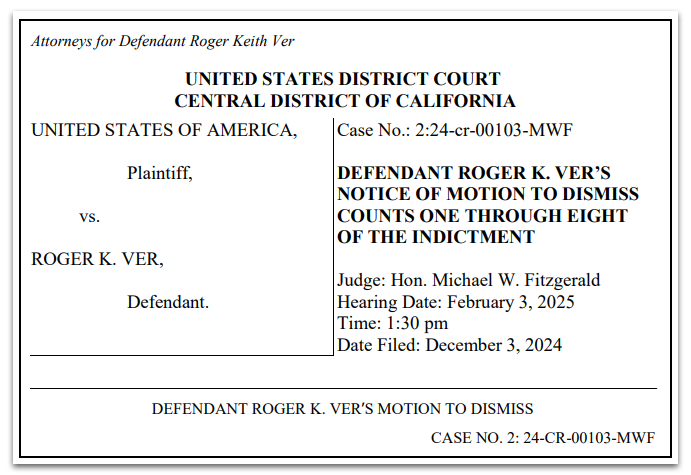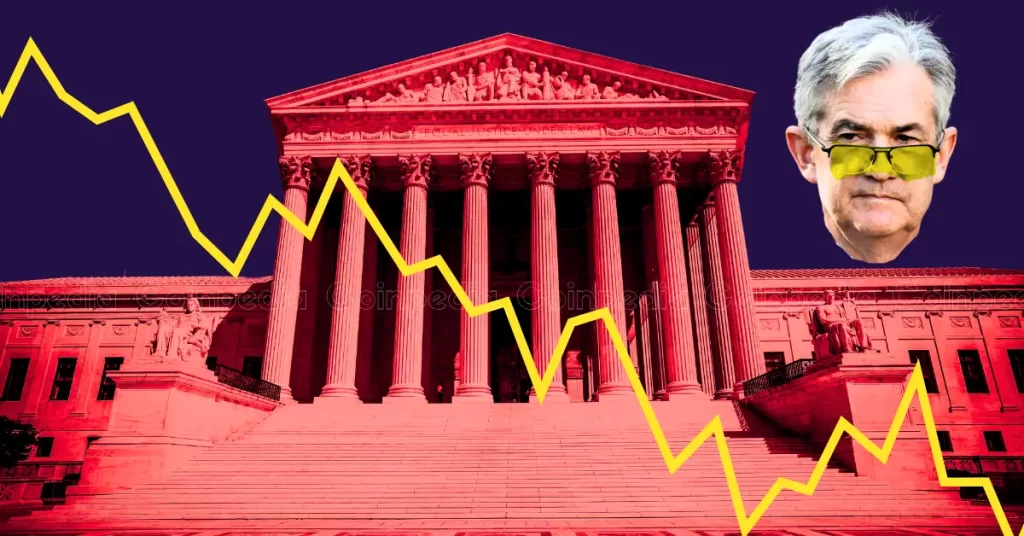
The post Bitcoin Jesus Fights $48M Tax Evasion Charges appeared first on Coinpedia Fintech News
Roger Ver, famously dubbed “Bitcoin Jesus,” is no stranger to controversy. Now, he’s up against U.S. prosecutors who accuse him of dodging $48 million in taxes tied to Bitcoin sales. Ver isn’t just denying the charges. He’s calling the tax rules themselves unconstitutional.
Pushing Back Against the IRS
On December 3, Ver filed a motion in California federal court, arguing that the IRS’s exit tax violates basic constitutional rights. The exit tax, meant to ensure citizens pay their dues before renouncing their U.S. citizenship, is a hefty blow for anyone with over $2 million in assets.
Ver, who gave up his U.S. citizenship in 2014 for Japanese citizenship, says the rules around digital assets are too vague. He also pointed out that back in 2014, Bitcoin markets weren’t liquid enough to make settling the tax easy.
His legal team argues the IRS’s tax law clashes with both the Apportionment Clause and the Due Process Clause. But will the court agree?
Prosecutors Say It’s More Than a Mistake
The prosecution paints a very different picture. They claim Ver deliberately avoided reporting $240 million in Bitcoin sales and filed false tax returns. According to them, it’s a clear case of tax evasion and fraud.
If convicted, Ver could face up to 30 years in prison. That’s a big deal, especially for someone with Ver’s influence in the crypto space. Still, Ver maintains he had no intent to cheat the system, pointing to documents that supposedly prove he followed the rules.
A Controversial Figure
Ver’s journey has been anything but smooth. Back in 2011, he bought Bitcoin when it was less than $1, earning his nickname “Bitcoin Jesus.” Later, he became a major backer of Bitcoin Cash after the 2017 Bitcoin hard fork.
But his legal troubles didn’t start here. In 2003, he served 10 months in prison for selling explosives online. Just last year, CoinFlex accused him of owing $47 million in USD Coin (USDC).
What to Expect
As the case unfolds, it’s clear this isn’t just about one man. It raises big questions about how tax laws apply to crypto. For now, Ver’s future hangs in the balance.

 1 month ago
33
1 month ago
33









 English (US) ·
English (US) ·